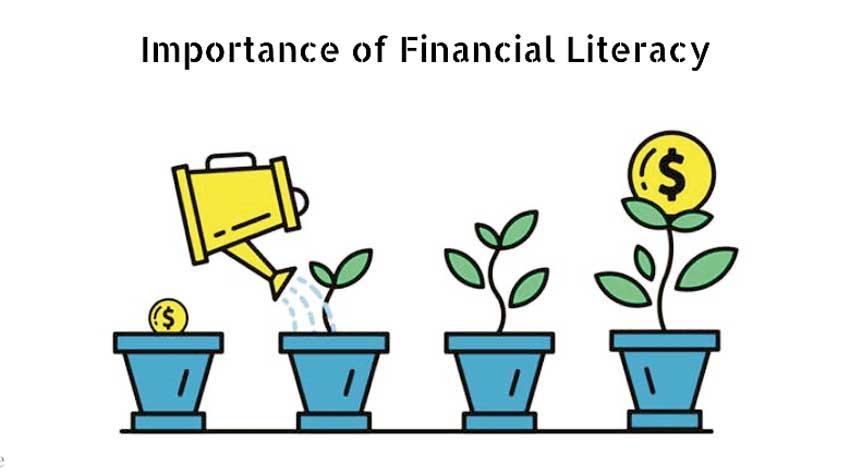20 Oct 2020 - {{hitsCtrl.values.hits}}

By S.S. Edirisinghe, S.S. Samarakkody and Dr. A.R. Ajwad
The proud Sri Lankan history has been nurtured by the scriptures and other systems since the visit of Arahat Mahinda and the literacy rate of Sri Lankans has been aptly proved by their ability to grasp modern technology in relation to main fields such as engineering, accounting, management and other disciplines.
Sri Lanka has shown a high literacy rate of about 92 percent, compared to other south Asian countries, according to the data of the Central Bank of Sri Lanka and is par with other developed countries. However, there is a noted dearth of surveys and studies that assess the financial literacy level in the Sri Lankan context.
It is observed that people with low levels of financial literacy suffer from that lack of knowledge at every stage of their lives and studies also pinpoint that people with a high degree of financial literacy are more likely to plan for retirement and that people who plan for retirement have more than doubled the wealth of people who don’t.
Thus, financial literacy is of paramount importance to survive in the modern turbulent society and a number of recent financial scandals in Sri Lanka indicate of symptoms of poor financial literacy levels. The quite alarming fact noted is that even some educated professionals had fallen into the prey of these scams, questioning the financial literacy of such intellectuals.
Researchers claim that even with little personal knowledge on financial matters, individuals can avoid making mistakes by consulting with those who are more knowledgeable, including financial professionals. It is not adequate to recognise that just financial knowledge is low; we must also understand whether financial literacy matters in decision-making.
Thus, a study was carried out involving the undergraduates in the Sri Lankan state universities to find the level of financial literacy and how different demographic factors such as gender, age and specialisation impact the financial literacy levels.
The intellectuals produced by the university system are expected to be the cream of society and there is no doubt that these are the individuals, who will play a significant role in the development of this nation.
In the research conducted by the authors, the undergraduates were tested on their fundamental financial knowledge on dimensions of general finance, saving and borrowings (i.e. banking products), insurance and investment areas and nearly 653 students from the five main state universities in 10 main disciplines (business and non-business disciplines) were selected, where the data was collected over a period of one and a half years.
The undergraduates of the business discipline included undergraduates from accountancy and business management and non-business discipline included undergraduates from the fields of engineering, physical sciences, humanities and social sciences and information technology.
The findings indicate that the overall financial literacy level was on average 69.58 percent, out of 100 percent of undergraduates in the business discipline. In terms of the sub-dimensions of financial literacy, these undergraduates scored the highest of 74.51 percent in the savings and borrowing sub-category, while they scored the lowest of 59.08 percent in the investment sub-dimension.
When compared with the general literacy rate of 92 percent of this country, the findings of this study indicate that their overall average is quite lower as well as knowledge in investment sub-dimension is even lower. The alarming finding is related with the undergraduates coming from the non-business majors, where the average financial literacy level was only 42.83 percent, out of 100 percent, which is even lower than 50 percent. This we see as a major concern.
Their knowledge in the investment-related sub-dimension was just 28.16 percent out of 100 percent. When considering these findings of the research conducted by the authors, it is clear that the undergraduates coming from the business management discipline had a better knowledge than the students from non-business management discipline.
Although the students coming from the non-business disciplines may be conversant in their own areas of study, they have displayed a significantly poor knowledge and awareness in fundamental financial aspects that any citizen should possess, to continue normal day-to-day life.
We believe that our primary, secondary and tertiary education system needs to be updated, so that regardless of the discipline, all students should be equipped with fundamental financial knowledge from primary education to the tertiary level.
In the modern world, various developed countries have given more emphasise to basic financial literacy skills and they have made their education systems aligned with
this objective.
However, unfortunately, this aspect is not observed in the Sri Lankan context and we do not see enough encouragement given by the state and privet sector. The authors observe that there is a systematic deficiency of personal finance education in our local education system.
Thus, in order to take Sri Lanka to the next level, we strongly believe that our education system needs to be reformed and financial education should be introduced regardless of the discipline.
Introduction of subjects related to financial literacy for all students in their formative stages as well as introducing course components related to accounting and finance in the curriculums of non-business majors at universities (and other tertiary institutions) could be suggested to remedy this
dire situation.
(S.S. Edirisinghe ([email protected]) and S.S. Samarakkody are Senior Lecturers at the Department of Accounting, Sri Lanka Institute of Advanced Technological Education. Dr. A.R. Ajwad is a Senior Lecturer at the Department of Accounting, University of Sri Jayewardenepura)
24 Dec 2024 9 hours ago
24 Dec 2024 24 Dec 2024
24 Dec 2024 24 Dec 2024
24 Dec 2024 24 Dec 2024
24 Dec 2024 24 Dec 2024